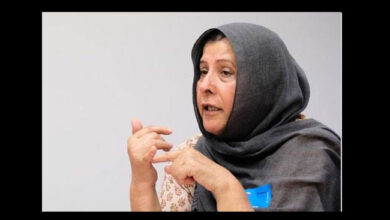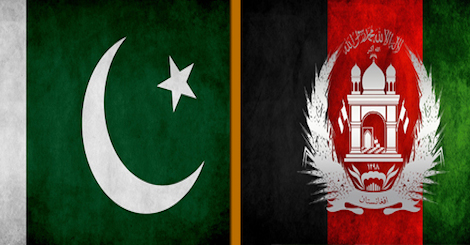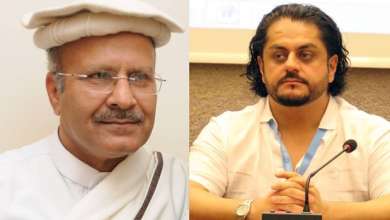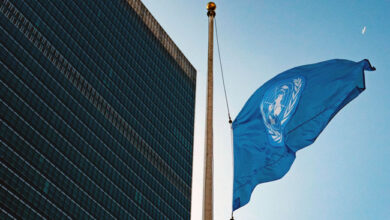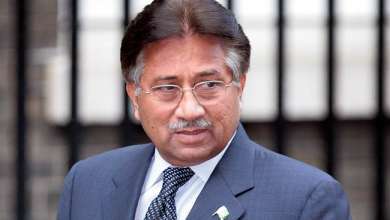The Significance of Eid ul-Fitr
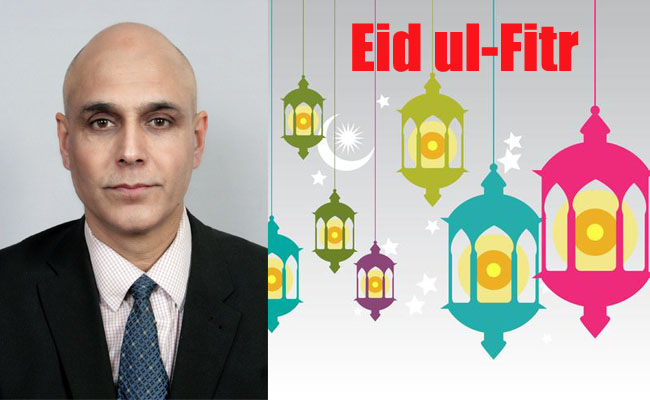
Written By: Qasim Swati (United Kingdom)
Also spelled as Eid al-Fitr, the “Festival of Breaking the Fast” or Eid ul-Fitr is celebrated on the 1st of Shawwal (the tenth month of the lunar based Islamic calendar), in the commemoration of the end of Ramadan fasting, with carrying out such activities, as Eid prayers, festive meals, gift-giving (like Eidi), donations of money to the poor, the needy and charities, in the form of Zakah/Zakat, Zakat al-Fitr or Fitrana, visiting relatives, neighbours, friends, and serving family members and guests with various types of dishes, meals and foods, etc.
The first sighting of the crescent moon, at sunset, on the night is the symbol of the advent of Eid ul-Fitr, as it starts at sunset on the night when the crescent moon is sighted for the first time.
Donating or paying Zakat ul-Fitr or Fitrana is one of the most compulsory obligations of Muslims to fulfil as a part of Eid ul-Fitr. It is a donation to the needy, the poor or charities on Eid ul-Fitr, during the last days of Ramadan, or one or two days before the Eid prayers, but not after. Zakat or Zakah is another philanthropic deed, done by Muslims, which means payment made annually under Islamic law on certain kinds of property and used for charitable and religious purposes, one of the Five Pillars of Islam. Similarly, a large number of Muslims also do Sadaqah, which is not only the name of giving some amount of money to the poor and the needy, but it is every righteous and noble act through which you can help others, especially those who need it, in different ways. Sadaqah, as defined by Shabana Binte Mahmoodul Hasan on Globalsadaqah.com on March 20, 2018, is the essential part of the faith of a Muslim through which he/she seeks the Pleasure of Allah the Almighty by helping the poor and the needy. Literally, Sadaqah means spending by someone from his or her abilities and possessions in the way of Allah the Greatest. Sadaqah is something, which means benevolence, charity or voluntary charity, in the modern context, according to the Holy Qur’an.
Another important element of Eid ul-Fitr is Eid prayers, consisting of two rakat/rakah (units), commonly offered in mosques, large halls or open fields, to be performed only in congregations, with some additional Takbirs (the Arabic term for the phrase “Allahu Akbar”, literally, meaning “God is the Greates”, by raising of your hands to your ears while saying “Allahu Akbar.”
Despite differences of traditions, customs and other cultural dissimilarities among the Muslims, living in different parts of the world, some of the basic Eid celebrations are the same and performed by the majority of the Muslims across the globe, like Eid prayers; donation of Fitrana or Zakat ul-Fitr to the poor and the needy and other such benevolent and humanitarian acts; social gathering by visiting and/or inviting relatives, friends and neighbours; preparation of festive meals, dishes and foods, (and served with generosity and hospitality); gift-giving or Eidi (giving to children in the form of good will money or gifts); wearing new clothes and shoes, or putting on clean clothes or shoes if new ones are not available, and decoration of their houses by most of them, etc.
As already referred to, special Eid meal is served in the form of various dishes and foods, like traditional sweets, such as baklava (a dessert originating in the Middle East, made of filo pastry filled with chopped nuts and soaked in honey) and Turkish delight (a gelatinous sweet traditionally made of syrup and corn-flour, dusted with icing sugar) in Turkey; sweets and snacks, including cake wa kolcha (a simple cake, resembling pound cake), Shor – Nakhod (chickpeas, tossed with cooked potatoes whilst still warm and, then, dressed with a puree of scallions, cilantro and vinegar) and Jalebi/Jelabi (an Indian sweet of a coil of batter fried and steeped in syrup) in Afghanistan; special biscuits in Tunisia, including baklava and some types of Ka’ak or Kahqa; special dishes in Somalia, like xalwo (a kind of halva (a Middle Eastern sweet made of sesame flour and honey), a staple of Somali cuisine, buskut/biskut (meaning biscuit in Somali language); Ka’ak, popcorn, sweets, chocolates and baked goods in Sudan; sheer khurma/sheer khorma (a festival vermicelli pudding) in India, Afghanistan, and parts of Central Asia and Indian sub-continent; special Eid breakfast being served with different kinds of sweets and desserts, including kheer (an Indian/Pakistani dessert, consisting of rice (or a similar ingredient) and sugar, boiled in milk or coconut milk, and often flavoured with cardamom and ground nuts), and the traditional dessert (sheer khurma) in Pakistan; different famous and traditional meals in India and Bangladesh; a special Lebaran (a popular name for Eid ul-Fitr in Indonesia) in Indonesia; various traditional sweets in the Philippines; a common meal, sweets and candies in Greece; miscellaneous dishes, meals and foods in the United Kingdom; and various Indian, Pakistani, Afghan, Middle Eastern and other traditional meals in the USA, etc.
This is an occasion of joy, jubilation and rejoicing for the Muslims all over the world, in which children get gifts, love and affection from their parents and elders, while the elderly people are treated with respect, honour and reverence.
Eid ul-Fitr is also offering a good opportunity for reconciliation, restoration of pleasant relations and coming closer to each other by angry relatives, neighbours and friends who might be not at good terms and may be angry with each other due to certain disputes, disagreements, complaints and grievances in the past. So, Eid ul-Fitr gives them the opportunity to get together on this happy occasion of the year and, thus, redress such feelings of resentment against each other and restore their friendly relations once again.
Rest is also very essential for good physical and mental health in life, as this is a time in which you cease work or movement in order to relax, sleep, enjoy yourself or recover your energy and strength. On the other hand, today’s is the age of technology and competition, where everyone struggles to excel and beat their rivals, which has made our lives workaholic, robotic and stressful, but the celebration of Eid ul-Fitr is a golden chance for the people to have some rest, leading to freedom from such robotic lifestyle, workaholism and avoiding hectic schedules in life.
Celebrating Eid properly and, according to the teachings of Islam, can also create and improve amiable and friendly relations between the rich and the poor, as it brings these two classes of society together by receiving help and respect from each other.
Qasim Swati is a freelance journalist, writer and human rights activist, based in the UK, and can be reached at https://qasimswati.com or mailto:info@qasimswati.com.

